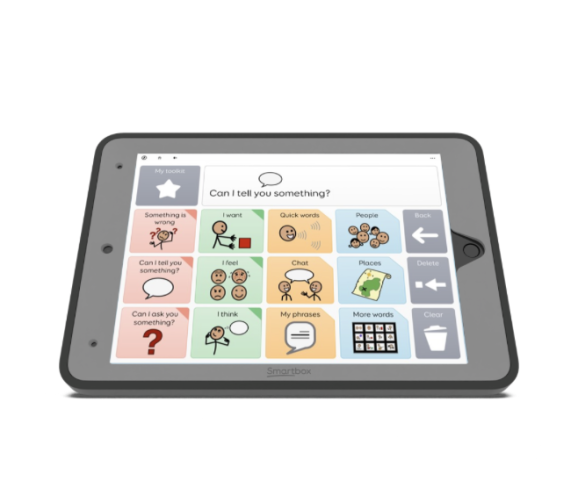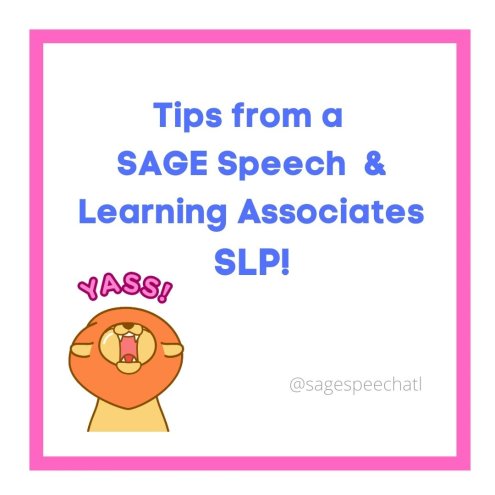Speech Therapy in Atlanta, Sandy Springs and Dunwoody , GA. Speak to a Pediatric Speech Therapist Now
Speech Therapy in Atlanta, Sandy Springs and Dunwoody , GA. Speak to a Pediatric Speech Therapist Now
Sucking is a natural reflex and infants and young children may use thumbs, fingers, pacifiers and other objects on which to suck. It may make them feel secure and happy, or provide a sense of security at difficult periods. Since thumb sucking is relaxing, it may induce sleep.
Thumb sucking that persists beyond the eruption of the permanent teeth can cause problems with the proper growth of the mouth and tooth alignment. How intensely a child sucks on fingers or thumbs will determine whether or not dental problems may result. Children who rest their thumbs passively in their mouths are less likely to have difficulty than those who vigorously suck their thumbs. Thumb sucking can create unusual tooth and jaw alignment, making formation of sounds during speech extremely difficult. We often see open bites in children who suck their thumbs. These open bites make formation of speech sounds where the tongue touches the back of the teeth almost impossible.
Persistent thumb sucking causes the muscles in the front of the mouth (lips and surrounding area) to overdevelop, while other muscles (e.g., the masseter) are not as active. This can cause a forward position of the tongue at rest and during swallowing. These factors in combination may lead to a persistent tongue thrust which can further influence the oral muscle development, occlusion, alignment of teeth, and speech.
SAGE Speech & Learning is the ONLY practice in Georgia that is trained and certified to provide the Lidcombe Program for stuttering. Stuttering therapy in Atlanta is scarce, and much…
A compassionate and enthusiastic person who provides one-on-one help in the classroom for a child with diverse needs. A facilitator's goal is for their student to be successful in the…
Speech therapy is the evaluation and treatment of communication and swallowing disorders. Speech and language development usually follows a typical pattern in children. If you have concerns about your child's…
SAGE Speech & Learning strives to provide each family with a welcoming and knowledgeable team of specialists, each uniquely equipped to address the needs of your child. We refer to…
Tongue thrust is often accompanied by occlusal and alignment problems and can also be associated with articulation errors. Sounds that are most often distorted by inaccurate tongue placement include tongue tip sounds /s, z, t, d, l, n/. Other sounds may be distorted if the oral structures are not in proper relationship, such as the case of a high and narrow palatal vault. Bunching of the tongue can affect palatal sounds, such as /S and dz/.
Dr. Cassinelli often works in conjunction with SAGE Speech & Learning's team to correct a tongue thrust. Retraining the muscles must be done with both an appliance and therapy. Dr. Cassinelli places the appliance, often called a bluegrass appliance, which helps teach the tongue to rest in proper position. Swallowing therapy by a certified Speech Pathologist works with the child to develop sounds that have been distorted due tongue thrust.
Dr. Cassinelli always prefers a pacifier to a finger or thumb sucking habit. While pacifiers can affect the teeth essentially the same way as sucking fingers and thumbs, Pacifier habits can be more easily broken than finger and thumb habits. If you have concerns about thumb sucking or use of a pacifier, consult your pediatric dentist.

At SAGE Speech & Learning Associates, we know that the best care for our clients comes from a collaborative approach. This…
Read More
At SAGE Speech & Learning Associates, we believe that early intervention is key when it comes to speech and language development,…
Read More
At SAGE Speech & Learning Associates, we are committed to providing personalized and specialized care for every child we serve. We…
Read More
Exploring the Benefits of Speech Generating Devices in Speech Therapy: Insights…
Read More
Has your school considered engaging SAGE Speech & Learning Associates? At SAGE Speech & Learning Associates, we recognize the vital role…
Read More
Fingers crossed, but it seems it that 2021 is shaping up to be a much better school year than 2020. We…
Read More
A Letter From Founder Saren Schapiro M.Sc., CCC-SLP Dear Colleagues, As the year rounds into the second quarter, I am touching…
Read More
Hello Clients and Friends, I want to thank you for being a part of our team in 2020. To have made…
Read More
Discuss with the child out loud/verbally what's coming next--"First we do this, then this, then this, then done/lunch/play/etc" Bundle-up…
Read More
This is a question we never imagined we would have to answer. SAGE Speech & Learning has pivoted to teletherapy services…
Read More